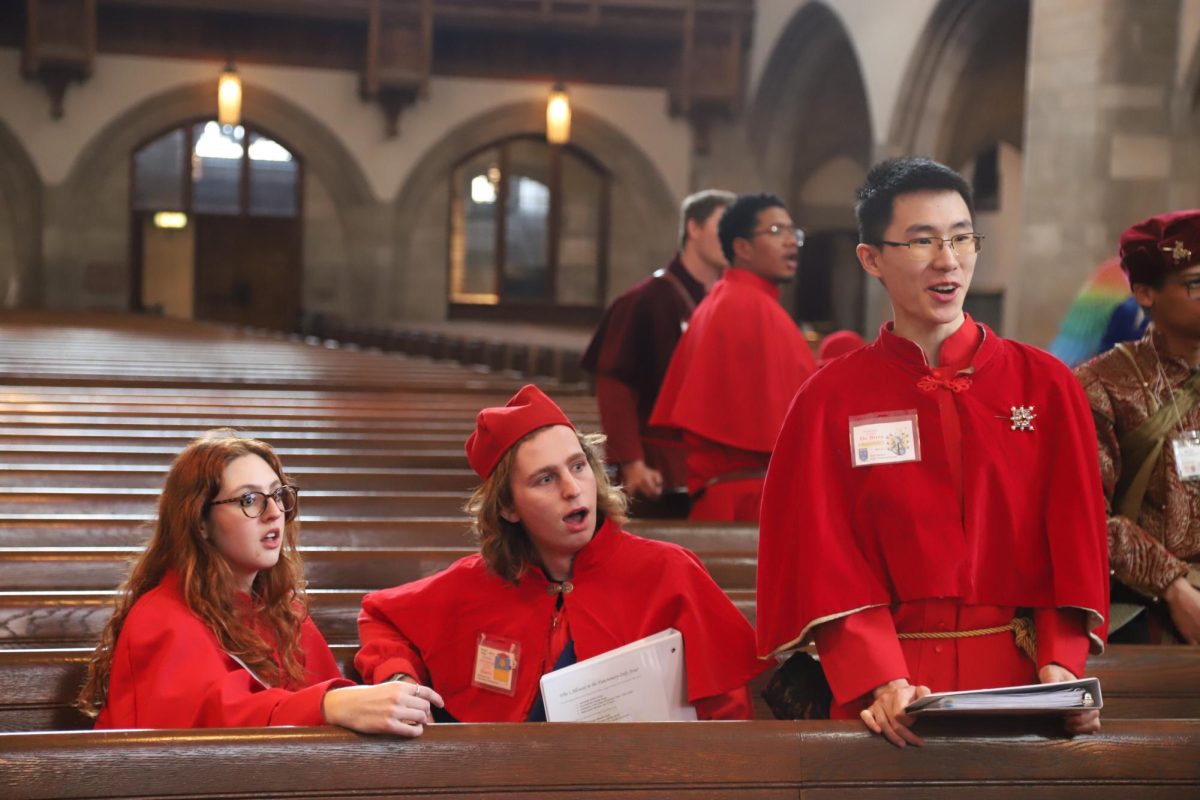Undergraduate library workers across the University of Chicago library system were not warned about the presence of poisonous elements in the bindings of books in the University’s collection, The Maroon has learned.
Full-time staff in the University of Chicago library system received an email on Friday, March 31, notifying them about the potentially poisonous materials in the bindings. Undergraduate workers only learned about the contamination on Wednesday, April 5, when a staff member independently posted a flier in the Regenstein Library’s bookstacks department.

The Maroon received a copy of the March 31 email with “Planning for Handling 19th-Century Cloth Covered Books with Copper Arsenic Compounds” sent out to the University’s “All Library Staff” email list by Associate University Librarian for Collections and Access James R. Mouw.
It read, “A team from Conservation and the Special Collections Research Center led by [Head of Conservation] Ann Lindsey is developing a protocol for identifying and handling this material.”
Per the email, the proposed protocol includes sealing books that meet the color identification criteria in polyethylene bags until testing can be conducted as well as training staff on identifying and handling such materials.
The University of Delaware’s Winterthur Poison Book Project, which was cited in the University’s email and the staff member’s flier, aims to identify and catalog books that contain known poisonous substances, particularly books from the 1840s and 1850s containing the pigment Paris green.
Paris green, also known as emerald green and Vienna green, is an arsenic-based pigment found in the book cloth, illustrations, and labels of certain antique books. Book cloth is the material used to create a textile effect on the covers of books, and it became popular in the 1800s as an alternative to expensive leather binding. More than 50 percent of the 19th-century cloth-case bindings analyzed by the Winterthur Poison Book Project had book cloth containing lead.
The danger in exposure to these books comes primarily from the pigment’s tendency to shed arsenic flakes. While contact with skin can cause small amounts of arsenic to be absorbed, ingesting or inhaling flakes containing arsenic poses more concerns. The project found that conservators could be exposed to arsenic pigment dust levels can be “several times higher than the OSHA exposure limit.”
Full-time and undergraduate staff workers say that the lack of communication regarding the books reflects a pattern of excluding student workers from important workplace conversations while also disregarding their contributions to library operations.
“There is a consistent pattern of treating student library workers as not full staff,” a full-time staff member told The Maroon. “The University has argued in court that students are not really workers and [has] routinely denied the existence of the student worker union for years after their [National Labor Relations Board] election.” Student library workers voted to unionize in 2017 and, after a set of appeals by the University, were granted recognition in 2018.
“More troubling is a tendency from management to treat student workers in an infantilizing way, claiming for example that discussing work conditions when student workers are present is somehow inappropriate,” the staff member said. “Considering the NLRB has upheld the right of student workers to form a union, that is likely an unfair labor practice.”
Third-year Caitlin Lozada, a staff member at Regenstein, believes that there is a lack of communication from the University to undergraduate workers. Lozada is also a copy chief at The Maroon.
“We really just don’t get that much direct communication from the University about work in general, such as pay raises, new contracts, staff events, et cetera,” she said. “I hear all the info from the [full-time staff] who tell us about important emails or events that happen in the Bookstacks department. If it weren’t for them, I would not know much about anything that is happening internally in the library, especially the copper arsenic email.”














